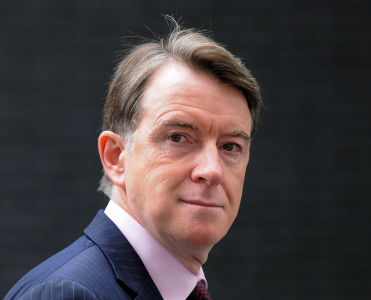Limited progress on European Parliament ethics package
The European Parliament voted today a package of over 400 changes to the Parliament’s internal rules of procedure. The Corbett report seeks to streamline parliamentary processes and make the inner workings more effective. On the initial ambition of the report to overhaul the Parliament’s ethics rules in light of recent scandals the report brings only limited progress.
Transparency International EU had made detailed recommendations based on international best practice on how to reform the Parliament’s ethics rules. Our three main recommendations were to:
- Increase lobby transparency in the European Parliament
- Require MEPs to publish more detailed information on outside activities to allow a meaningful monitoring of potential conflicts of interest, particularly where MEPs have outside activities with registered lobby organisations
- Make the oversight body (Advisory Committee) more independent and allow it to sanction members in case of violation of the Code
Increasing lobby transparency in the European Parliament
There are some real improvements in the area of lobby transparency. MEPs approved that they should only meet with those lobbyists on the EU Transparency Register. They also banned themselves from working as lobbyists while in office. It is unclear, however, if holding board positions with registered lobby organisations will be considered lobbying for example.
158 or 21% of MEPs currently have paid outside activities. 50 earn in excess of 20,000 EUR per year on the side. Seven MEPs are currently working for organisations registered in the EU lobby register, mostly in board positions. Transparency International EU recommended to ban any paid employment with organisations that are lobbying the EU institutions. Members should also no longer receive payments for any board memberships or speaking engagements, as these can bear high risks of undue influence.
MEPs that are currently employed by organisations on the EU Transparency Register:
| Name | Committees | Outside Activity | Employer | Source |
| Hans-Olaf HENKEL | ITRE, DROI | Board member | Continental | http://www.integritywatch.eu/ep.html#mep124823 |
| Viviane Reding | INTA | Board member | Bertelsman foundation | http://www.integritywatch.eu/ep.html#mep1185 |
| Robert Rochefort | IMCO | Administrator | Eurotunnel | http://www.integritywatch.eu/ep.html#mep97022 |
| Monika HOHLMEIER | BUDG, LIBE | Advisory board member | BayWa AG | http://www.integritywatch.eu/ep.html#mep96780 |
| Hannu TAKKULA | INTA | Board member | TEOSTO RY | http://www.integritywatch.eu/ep.html#mep28316 |
| Sylvie GOULARD | ECON | Board member | Institut für Europäische Politik | http://www.integritywatch.eu/ep.html#mep97137 |
| Albert DESS | AGRI | Board member | BayWa r.e. Solar Projects GmbH | http://www.integritywatch.eu/ep.html#mep28228 |
| Paul Rübig |
BUDG, ITRE |
WKÖ |
https://www.integritywatch.eu/ep.html#mep2278 |
Transparency International EU had also recommended that MEPs publish their meetings with lobbyists online. Similar rules already apply to European Commissioners and their closest advisors.
More detailed declarations of financial interests
Following the Cash-for-Amendments scandal in 2011 the European Parliament introduced a Code of Conduct. The Code allows members to exercise outside activities, but all activities have to be declared in a declaration of financial interest. These declarations should allow the public to monitor MEPs’ activities for potential conflicts of interest.
Transparency International EU has been closely monitoring these outside activities. Our online tool EU Integrity Watch provides details on the almost 1,200 side activities of MEPs and the yearly outside incomes of 4.3 to 10.8 million euros. Dozens of MEPs provide meaningless information in their declarations such as “consultant” or “lawyer” that do not allow to monitor for potential conflicts of interest. Transparency International EU had also recommended to translate the declarations into English and possibly other official languages and make all information available in an easily accessible, searchable and machine-readable format to make it easier for the public to hold their elected officials to account.
Members should also be asked to publish the exact amount of their outside revenues, rather than broad categories such as “1,000-5,000 EUR per month”.
MEPs with descriptions where conflicts of interest cannot be ruled out earning more than 1,000 EUR/month from the activity:
| Name | Activity | € / month | Url |
| Bogdan Brunon WENTA | Individual Economic Activity | 10,000 or more | http://www.integritywatch.eu/ep.html#mep124903 |
| Rachida Dati | Lawyer | 10,000 or more | http://www.integritywatch.eu/ep.html#mep72775 |
| Bernard MONOT | Senior employee – Economist and Financial | 5,000 – 10,000 | http://www.integritywatch.eu/ep.html#mep124761 |
| Edouard FERRAND | Wealth Management Advisor | 5,000 – 10,000 | http://www.integritywatch.eu/ep.html#mep124767 |
| KOSTAS CHRYSOGONOS | Lawyer | 5,000 – 10,000 | http://www.integritywatch.eu/ep.html#mep125061 |
| Paulo RANGEL | Lawyer | 5,000 – 10,000 | http://www.integritywatch.eu/ep.html#mep96903 |
| Salvatore Domenico POGLIESE | Chartered Accountant | 5,000 – 10,000 | http://www.integritywatch.eu/ep.html#mep124853 |
| Stanislav POLČÁK | Lawyer | 5,000 – 10,000 | http://www.integritywatch.eu/ep.html#mep124704 |
| Alain CADEC | Insurance Agent | 1,000 – 5,000 | http://www.integritywatch.eu/ep.html#mep96849 |
| Aymeric CHAUPRADE | self-employed | 1,000 – 5,000 | http://www.integritywatch.eu/ep.html#mep124752 |
| Davor ŠKRLEC | Expertise | 1,000 – 5,000 | http://www.integritywatch.eu/ep.html#mep124756 |
| Eleonora FORENZA | Temporary employee | 1,000 – 5,000 | http://www.integritywatch.eu/ep.html#mep125193 |
| Javier NART | Lawyer | 1,000 – 5,000 | http://www.integritywatch.eu/ep.html#mep125005 |
| Louis ALIOT | Lawyer | 1,000 – 5,000 | http://www.integritywatch.eu/ep.html#mep30190 |
| Salvatore CICU | Lawyer | 1,000 – 5,000 | http://www.integritywatch.eu/ep.html#mep124854 |
| Steven WOOLFE | Consultant | 1,000 – 5,000 | http://www.integritywatch.eu/ep.html#mep124966 |
| Takis HADJIGEORGIOU | Lawyer | 1,000 – 5,000 | http://www.integritywatch.eu/ep.html#mep96907 |
| Timothy KIRKHOPE | Lawyer | 1,000 – 5,000 | http://www.integritywatch.eu/ep.html#mep4542 |
| William DARTMOUTH | Consultant for land company | 1,000 – 5,000 | http://www.integritywatch.eu/ep.html#mep96958 |
Creating an independent oversight body
When the Code of Conduct entered into force in 2012, the European Parliament also created the Advisory Committee on the Code of Conduct. The Committee assists members that have questions and can issue recommendations to the President in case of violations. Indeed, the committee has made recommendations in 12 cases in which the Code has been breached since its creation. Not a single member, however, has ever been sanctioned by the President of Parliament. The committee is currently composed of five sitting MEPs from the five biggest political groups. This means MEPs are judging on potential ethics violations by their colleagues.
Transparency International EU had recommended to make the committee more independent and less political. The committee should also be able to initiate inquiries (rather than wait for a referral by the president which might never come) and issue binding sanctions in cases in which the Code has been broken. All final decisions by the committee should also be made public. Currently not only deliberations, but also all recommendations are kept secret and cannot even be accessed through access to documents requests long after decisions have been taken.
Introducing a cooling-off period for MEPs
There are currently no restrictions for MEPs upon leaving office. They can start lobbying their former colleagues or staff in the EU institutions the next day. Following the scandal surrounding former Commission President Barroso’s move to Goldman Sachs, on which many MEPs have been quite outspoken, the European Parliament should introduce cooling-off rules for members of Parliament. Transparency International EU had recommended to link the length of the cooling-off rules – during which MEPs should be banned from lobbying the EU institutions or accepting employment that could constitute a conflict of interest – to the period during which MEPs already receive a tax-payer-funded transitional allowance. Such changes would require a modification of the Statute for Members of the European Parliament and cannot be achieved through changes to the rules of procedure. Changing the Statute for Members should now be high on the priority list for the Constitutional Affairs Committee.




